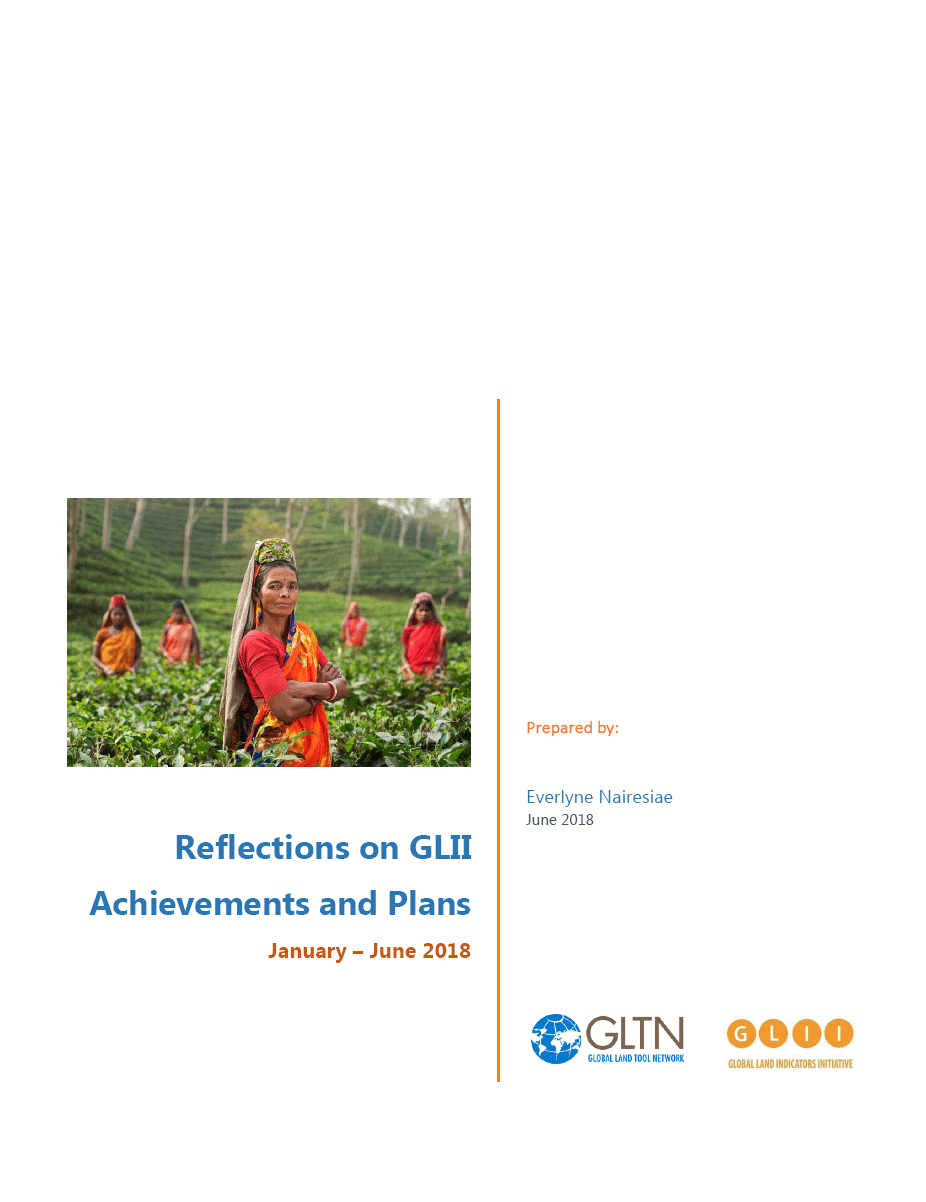Resource information
Its June 2018, half a year down the line following the reclassification of several land indicators including 1.4.2 by the IAEG-SDGs in November 2017. To all of us, this milestone was defining and encouraging in our effort towards achieving monitoring of land governance issues at scale.
All stakeholders have a role to pay to make this happen including dissemination of the agreed methodology for monitoring land indicators in the SDGs as approved by IAEG-SDGs, localization of the SDGs indicators and advocacy with national governments (including ministry of lands and National Statistical Organizations (NSOs); regional institutions working on land, data and statistics, civil society organizations, research and academia, and the private sector) to prioritize resources, support capacity development, integration of essential questions for data collection and dissemination for planning and decision making at country level.
Several agencies have since established data initiatives to make direct and indirect contribution to the SDGs monitoring agenda and other global frameworks.
These initiatives include: the Monitoring and Evaluation of Land in Africa (MELA) in the context of Framework and Guideline on Land Policy in Africa led by Africa Land Policy Centre (ALPC); Property Rights Index (PRIndex) initiative on measuring perception of tenure security led by the Land Alliance; and the International Land Coalition (ILC) Dashboard for monitoring and reporting citizen generated data that inform realities at local and national levels on matters land governance, and the Land Mark Data on Indigenous People.
Additionally, they embrace the use of comparable indicators for comparability of data to be generated, presenting a greater level of comparability and enhance triangulation in analysis of key land governance issues.
GLII continues to coordinate and support these initiatives, linking them to the broader efforts of the custodian agencies responsible for monitoring land indicators in the SDGs and as such enabling a central coordination and convergence mechanism for which various data sources find synergy and complementarity in support of the global agenda for monitoring land governance issues for evidence-based policy decisions. These initiatives will broaden the ecosystem of land data needed for the development of a Global Status Report on Land Governance, proposed to be done jointly by custodian agencies with support of other data contributing agencies; in a process to be facilitated by GLII. The global report will translate data into a readable and concise report that will inform progress and trends on key land governance issues for planning and policy decision at country, regional and global level.

